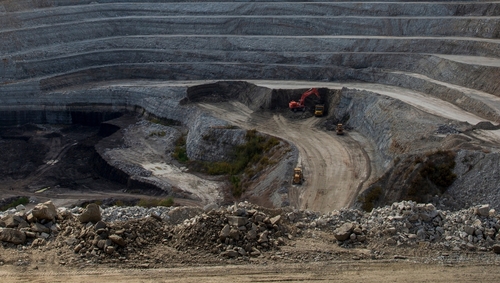
Excavation is a crucial step in any construction project, as it involves the removal of soil, rock, and other materials to create a foundation for buildings, roads, or other structures. However, excavation can present unique challenges when dealing with difficult terrain, such as rocky soil, steep slopes, or wet conditions. In this blog, we will explore some common excavation challenges faced by construction professionals and discuss innovative solutions that can help overcome these obstacles to ensure a successful project.
Rocky Soil: Breaking Through Hard Layers
One of the most common challenges in excavation is dealing with rocky soil, which can slow down progress and increase project costs. Excavating through hard rock requires specialized equipment and techniques, such as rock hammers, hydraulic breakers, or explosives. In some cases, rock drilling and blasting may be necessary to fracture the rock and make excavation easier. By working with experienced contractors and utilizing the right tools, construction professionals can efficiently break through hard layers of rock and continue excavation work without delays.
Steep Slopes: Ensuring Stability and Safety
Excavating on steep slopes presents its own set of challenges, as it requires careful planning to ensure stability and safety during the process. To prevent erosion and slope failures, contractors may need to install various stabilization measures, such as retaining walls, soil nails, or rock anchors. Additionally, using specialized equipment like track-mounted excavators or slope-adjustable bucket attachments can help operators work safely and efficiently on challenging terrain. By implementing proper slope stabilization techniques and equipment, construction teams can minimize risks and complete excavation tasks on steep slopes with confidence.
Wet Conditions: Managing Water and Soil Runoff
Excavating in wet or waterlogged conditions can be difficult, as it can lead to soil erosion, muddy work areas, and unstable excavation sites. To manage water and soil runoff, construction crews can use techniques like dewatering systems, silt fences, or sediment ponds to prevent erosion and control water flow. Additionally, utilizing amphibious excavators or track-mounted equipment with flotation options can help operators work effectively in wet conditions without causing damage to the surrounding environment. By implementing proper water management strategies and equipment, construction professionals can successfully navigate wet terrain and maintain a safe and productive work environment.
Environmental Regulations: Complying with Local Laws
Excavation projects in difficult terrain must also comply with local environmental regulations to protect natural habitats, water sources, and wildlife. Contractors may need to obtain permits, conduct environmental assessments, or implement erosion and sediment control measures to minimize the project’s impact on the surrounding environment. By working closely with environmental consultants and regulatory agencies, construction teams can ensure that excavation activities are carried out responsibly and in accordance with all applicable laws and regulations. By incorporating environmental considerations into the planning and execution of excavation projects, construction professionals can minimize their environmental footprint and contribute to sustainable development practices.
Innovative Technologies: Enhancing Efficiency and Accuracy
Advancements in technology have revolutionized the field of excavation, offering new tools and techniques to enhance efficiency and accuracy in challenging terrain. Drone surveys, GPS-guided equipment, and 3D modeling software can help construction teams plan and execute excavation projects with precision, reducing errors and improving productivity. Additionally, using remote-controlled equipment or robotic systems can increase safety and reduce the need for manual labor in hazardous or hard-to-reach areas. By embracing innovative technologies and incorporating them into excavation practices, construction professionals can streamline operations, increase productivity, and achieve better results in difficult terrain.
Summary
Excavating in difficult terrain presents unique challenges that require careful planning, specialized equipment, and innovative solutions. By addressing common challenges such as rocky soil, steep slopes, wet conditions, and environmental regulations, construction professionals can successfully navigate challenging terrain and complete excavation projects with confidence. By utilizing the right tools, techniques, and technologies, construction teams can overcome obstacles, enhance efficiency, and achieve successful outcomes in even the most demanding excavation environments.
Need Construction Preparation & Services in Montgomery, TX?
At Randy Roan Construction Inc., we work hard to ensure our quality work is done in a timely manner. We provide services such as land clearings, site utilities, and asphalt paving along with many other services. We guarantee your customer satisfaction with our work here at Randy Roan Construction Inc. So give us a call today!

